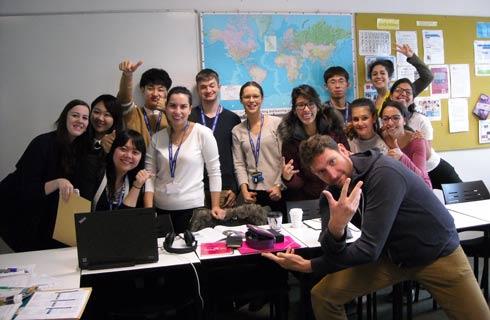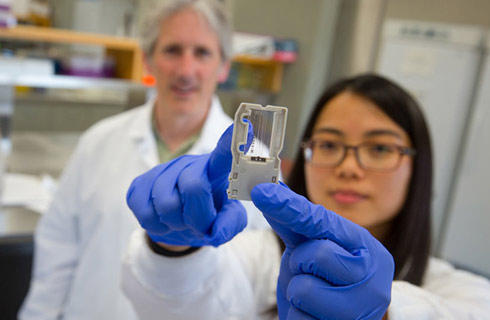- IDP China>
- 课程库>
- 工程与技术>
- 工程技术>
- 纳米技术>
- Master of Applied Science in Mechanical and Mechatronics Engineering - Nanotechnology
机械和机电一体化工程应用科学硕士-纳米技术
Master of Applied Science in Mechanical and Mechatronics Engineering - Nanotechnology

学历文凭
Masters Degree

专业院系
Department of Mechanical and Mechatronics Engineering

开学时间

课程时长

课程学费

国际学生入学条件
Resume
Supplementary information form (SIF)
The SIF contains questions specific to your program, typically about why you want to enrol and your experience in that field. Review the application documents web page for more information about this requirement
If a statement or letter is required by your program, review the writing your personal statement resources for helpful tips and tricks on completion
Transcript(s)
References
Two academic references are required
Proof of English language proficiency, if applicable
TOEFL 80 (writing 22, speaking 20, reading 20, listening 18) IELTS 6.5 (writing 6.0, speaking 6.0)
IDP—雅思考试联合主办方

雅思考试总分
6.5
了解更多
雅思考试指南
- 雅思总分:6.5
- 托福网考总分:80
- 托福笔试总分:160
- 其他语言考试:PTE (Academic) - 60 (writing 60, speaking 60)
CRICOS代码:
申请截止日期: 请与IDP顾问联系以获取详细信息。
课程简介
The University of Waterloo offers the first MASc and PhD programs in Nanotechnology of its kind in Canada. The interdisciplinary research program, jointly offered by three departments in the Faculty of Science and four in the Faculty of Engineering, provide students with a stimulating educational environment that spans from basic research through to application. The goal of the collaborative program is to allow students to gain perspectives on nanotechnology from a wide community of scholars within and outside their disciplines in both course and thesis work. The MASc collaborative program provides a strong foundation in the emerging areas of nano-engineering in preparation for the workforce or for further graduate study and research leading to a doctoral degree. Four key areas of research strengths have been identified: nanomaterials, nano-electronics design and fabrication, nano-instruments and devices, and nano-biosystems. The objective of the PhD program is to prepare students for careers in academia, industrial R & D and government research labs.
相关申请
 预科
预科 奖学金
奖学金 实习机会
实习机会 在校学习
在校学习 跨境学习
跨境学习 校园授课-线上开始
校园授课-线上开始 在线/远程学习
在线/远程学习
学校排名

世界排名201
数据源:泰晤士高等教育世界大学排名
关于滑铁卢大学

滑铁卢大学是加拿大滑铁卢市的一家著名大学,是一所以研究为主的中等大小的公立大学,创建于1957年。以数学、计算机科学、工程学而闻名。该校位于安大略省的西南面的滑铁卢市,占地面积约为1000英亩。滑铁卢大学成立至今,仅数十年便跻身加拿大名校之列,是加拿大发展最快的学校。2011年到2013年,该校一直稳居麦克林杂志评选的加拿大综合性大学排名的第三位,是北美地区最优大学之一,其数学,计算机科学和工程学科教学水平居世界前列。特别是做为北美地区第一个经认可建立数学系的大学,拥有世界上最大的数学系以及世界上最大的合作办学项目。学校共授予100多个本科学位专业,28种硕士及博士学位专业,学校的代表队曾多次获得ACM 国际大学生程序设计竞赛的冠军。
本校相关课程

系统设计工程哲学博士
学历文凭
Ph.D.
开学日期
课程费用总额


系统设计工程工程学硕士
学历文凭
Masters Degree
开学日期
课程费用总额


社会学文学硕士[仅课程]
学历文凭
Masters Degree
开学日期
课程费用总额


Doctor of Philosophy in Religious Studies
学历文凭
Ph.D.
开学日期
课程费用总额


运动机能学博士-工作与健康
学历文凭
Ph.D.
开学日期
课程费用总额


娱乐与休闲研究哲学博士
学历文凭
Ph.D.
开学日期
课程费用总额

其他相关课程

物理学哲学博士-纳米技术
 滑铁卢大学
滑铁卢大学学历文凭
Ph.D.
开学日期
课程费用总额


物理学理学硕士-纳米技术
 滑铁卢大学
滑铁卢大学学历文凭
Masters Degree
开学日期
课程费用总额


机械与机电工程专业哲学博士-纳米技术
 滑铁卢大学
滑铁卢大学学历文凭
Ph.D.
开学日期
课程费用总额


机械和机电一体化工程应用科学硕士-纳米技术
 滑铁卢大学
滑铁卢大学学历文凭
Masters Degree
开学日期
课程费用总额


化学哲学博士[纳米技术合作计划]
 滑铁卢大学
滑铁卢大学学历文凭
Ph.D.
开学日期
课程费用总额


化学理学硕士[纳米技术合作计划]
 滑铁卢大学
滑铁卢大学学历文凭
Masters Degree
开学日期
课程费用总额


























